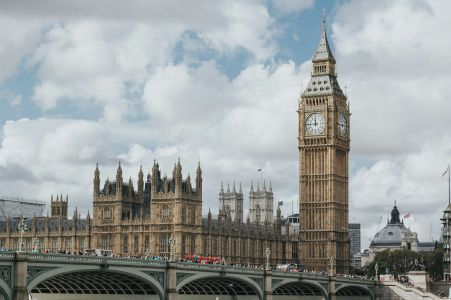- By Buckinghamshire Business First
- 2 April, 2025
Share by email
The Chancellor of the Exchequer, Rachel Reeves, presented her Spring Statement to Parliament on Wednesday 26th March.
Spring Statement headlines
While the Spring Statement does not include any major spending and taxation announcements, these being reserved for the Spending Review in June 2025, it does include some helpful updates on economic forecasts and plans for government policy and strategy.
- Major focus on delivering growth through the Defence and Construction sectors, based on increases in Ministry of Defence (MoD) spending and changes to planning policy.
- However, short term inflation will be higher, and growth will be lower, due to lagged effects on these changes.
- Additional spending cuts have become necessary due to the savings from out of work benefits being revised down by the Office for Budget Responsibility (OBR).
- The statement also includes a greater focus on technology development and adoption – both as a means of increasing public sector productivity and achieving economic growth more generally.
- Aim to cut government costs by 15%, enabled through a new Transformation Fund to make public services more efficient, including through investment in AI and technology.
Economic forecasts
- The OBR recognises the impact of global trade instability impacting growth, as well as public finances and government borrowing costs.
- The OBR expects inflation to fall gradually in future, returning to target next year, but is expected to be higher in 2025 than the previous forecast – at 3.2%.
- 10-year Gilt yields are forecast to increase, making it more challenging to finance public services in future, and increasing borrowing costs in the forecast.
- Output growth forecasts have halved to 1% for this year. But longer term growth forecasts have been revised up to 1.9% in 2026.
- Productivity growth has been revised down since October 2024, with growth mainly driven by increases in higher employment.
- Real household disposable incomes are expected to grow, by £500 per year per household, increasing demand for business goods and services.
- National Planning Policy Framework changes have been reviewed by the OBR and are expected to increase long term economic growth by 0.2% by the end of the forecast period. Changes to the national planning policy alone will help build over 1.3 million homes in the UK within the next five years. As a result, construction activity is likely to form a major component of economic growth in coming years.
- The government remains committed to existing fiscal rules, namely to balance day-to-day spending by tax receipts only, and reduce public sector debt.
- The OBR forecasts that the new announcements will ensure stability rule is met, such that revenue spend is met by tax receipts. This will generate a surplus within two years.
- Investment rule will also be maintained, with debt falling by 2027/28. Long term headroom will be the same as the previous forecasts.
Business environment
- The Chancellor has confirmed details of how international aid funding will be reallocated to defence, allowing UK defence spending to rise to 2.5% of national income by 2027, mainly capital investment. This may support growth in the county’s defence companies, such as Martin-Baker and Flitetec. The South East alone accounts for some 93% of defence GVA.
- No specific investments were announced for Buckinghamshire, but there may be some benefit for local businesses. Defence is expected to feature as a core part of the industrial strategy.
- £2.2bn provided for the MoD in the current financial year, with an aim to ensure the UK economy benefits as a result.
- 10% of the MoD's budget is earmarked to be spent on drone and AI technology development.
- Defence procurement will also be amended to better include small businesses.
- £2bn export finance for defence exporters.
- Reiterated £600m funding for construction skills courses across the UK.
Spring Statement-related documents are available on the government website.
Leading retail association "deeply concerned" by Spring Statement
The British Independent Retailers Association (Bira) has said the Chancellor's Spring Statement has failed to address the "perfect storm" of cost pressures facing independent retailers across the UK.
Andrew Goodacre, CEO of Bira, said: "While we welcome the Chancellor's focus on economic growth, we are deeply concerned that the Spring Statement has overlooked the immediate crisis facing independent retailers. Our members are confronting a perfect storm of rising costs – from the 140% increase in business rates to the National Living Wage rise and National Insurance changes – all while consumer spending remains subdued.
"The Chancellor's forecasts of improved household income may offer some long-term optimism, but they do nothing to address the immediate cash flow challenges our members face. Many independent retailers are making difficult decisions right now about whether they can continue trading under these conditions.
"We specifically called for continued investment in our high streets, proper funding to tackle retail crime, and a statutory requirement for local authorities to prioritise economic development. It's disappointing that Rachel Reeves has not responded to any of these crucial areas in her statement. The Chancellor spoke about being 'impatient for change' and the British people being 'impatient for change' – our members are certainly impatient for meaningful support that recognises their vital contribution to local economies and communities.
"Independent retailers are naturally resilient and optimistic, but even the most positive business owners are finding it difficult to maintain that outlook in the current climate. If the government truly wants to 'deliver prosperity for working people,' as the Chancellor stated, they must not forget the thousands of independent retailers who provide jobs and services in communities across Britain."
"We urge the Chancellor to reconsider her approach before the full Budget in the autumn and engage meaningfully with the independent retail sector to prevent further closures and job losses on our high streets."
Join Bira and get 10% off membership costs - exclusive BBF member offer
For over 125 years, Bira has proudly represented thousands of retailers across the UK – from single shops to small chains and large department stores.
Learn more about the many benefits of joining Bira and access your 10% discount by visiting their special offer page.







